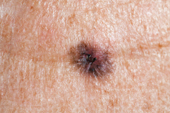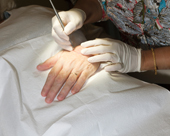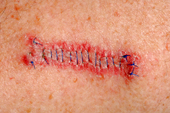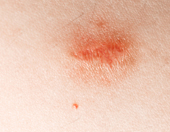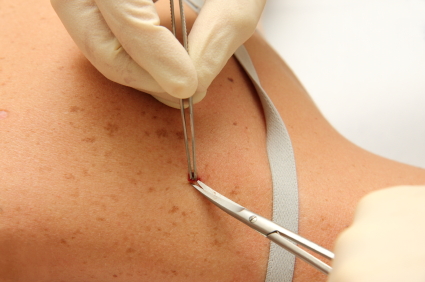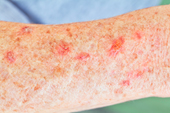Dr. Amir Bajoghli of the Skin and Laser Dermatology Center has once again been recognized as a Top Doctor in the Northern Virginia area. This award is presented to physicians and surgeons as an official recognition of their professionalism, excellence and dedication to their patients and specialty. This time, the honor was bestowed by Virginia Living Magazine. Once a year,…
Dr. Amir Bajoghli completed his ninth Reston Triathlon with beautiful race-day weather conditions. He was honored to be with his very good friend, Dr. Neil Medoff, who has never missed a Reston Triathlon since its inaugural year—completing 36 Reston Triathlons in a row.
Dr. Bajoghli visiting US Senator Tim Kaine’s office as the president of the Medical Society of Virginia along with other board members discussing healthcare issues and advocating on behalf of physicians and patients. Some interesting facts about the Russell Senate building…..Among the senators who had offices in the Russell Building were five who went on to serve as president of…
The Atlantic Dermatological Conference was founded in 1923 as a case-based clinical meeting to share discoveries, and as a means of offering the best care to patients. The attendees are a dedicated group of thousands of dermatologists from 14 member societies extending all along the eastern seaboard of the United States and Canada. The Atlantic Dermatological Conference is one of the…
Dr. Amir Bajoghli of the Skin and Laser Dermatology Center has once more been awarded recognition as a Top Doctor in Dermatology and MOHS Surgery for 2019, by Northern Virginia Magazine. This award is presented to physicians and surgeons in the Northern Virginia area as an Official Recognition of Continued Commitment to Providing Nothing Short of Excellence. The annual “Top…
Dysplastic Nevi (Atypical Moles) Melanocytes are cells that produce skin pigment or color. Sometimes, these cells clump together and form what are known as moles or nevi. The majority of people have a minimum of ten moles located on their bodies. Moles can be classified as either common or abnormal. Common moles will all be the same color. They can be brown, black,…
Ultraviolet (UV) Radiation Ultraviolet, or UV for short, radiation is invisible rays emitted from the sun. Scientifically speaking, ultraviolet radiation is defined as a form of electromagnetic radiation, the term used for any energy that moves at the speed of light. Ultraviolet rays are measured in waves and given a specific wavelength. Ironically, with smaller ultraviolet wavelengths, there is more…
Melanocytes are cells that produce dark skin pigment known as melanin. Melanin is what gives your skin color. At times, melanocytes may clump into a group forming a nevus (plural nevi) or mole. Nevi can be classified as either common or abnormal (atypical) moles. Moles (Nevi) versus Melanoma A nevus is a non-cancerous (benign) mole. Moles are generally not congenital (present at…
Treating Sunburns The skin is the body’s largest organ and one of body’s the most sensitive organs. Therefore, when you get a sunburn, it can be very painful. There are several ways to treat a sunburn. However, the treatments at best will only minimize the pain. Find out how you can treat your sunburn. The Two Degrees of Sunburns There…
As people begin to grow older, skin can start to look dryer, with tiny lines and wrinkles beginning to appear. The primary reason for this is because as we age we begin to lose collagen, which is a connective tissue that can be found throughout the body. Normal breakdown of collagen happens to everyone and is due to normal wear…
Skin cancer does not discriminate. Regardless of your race, gender or age, everyone is at risk for developing skin cancer. There are three types of skin cancer: basal cell, squamous cell and melanoma. Each year more than two million people in the United States are diagnosed with one of the three types of skin cancer. There are certain factors that…
Laser Therapy for the Treatment of Skin Cancer Laser therapy treatment can be used to remove cancer cells or precancerous cells from the skin. It can also be used to relieve some of the symptoms of skin cancer and other forms of cancer. Most often, though, specialists use laser therapy to treat cancers on the surface of the body or…
If you have been diagnosed with melanoma, then you are probably asking yourself “what next?” Even though your doctor may have tried to explain it to you, he probably used medical terms and a bunch of technical words. You probably still do not have a clear idea of what is to be expected once you start treatment. To better understand,…
Five Types of Melanoma Treatment There are different types of treatment available for patients with melanoma. Standard treatments are those currently used by dermatologists today. There are also treatments that are being tested in clinical trials. A clinical trial is a treatment done by a research study meant to help current treatments or obtain information on new treatments. If a…
Mohs surgery is a specialized type of surgery utilized for the treatment of certain types of skin cancers. Considered a state of the art technique, it boasts the best rate of cure in complicated cases of basal cell and squamous cell carcinomas. Advantages of Mohs surgery include two factors. The first advantage is that, with this procedure, the dermatologist only takes…
Treatment Options by Stages for Melanoma There are different types of treatments available for patients with melanoma. Some treatments are standard (those currently being used), and some are being tested in clinical trials. A clinical trial is a research study meant to either obtain information on new treatments, or to improve on current treatments. Some clinical trials are only open…
Melanoma is the most aggressive form of skin cancer. Once your dermatologist detects melanoma, other tests are necessary to find out if cancer cells have spread either to other parts of the body or within the skin. Find out about the staging process, procedures and tests used in this process, and the ways melanoma spread in the body. The Staging…
Skin Cancer Surgery Risks and Safety Information Skin cancer diagnoses can involve several treatment options, including radiation therapy, chemotherapy, immunotherapy, and surgery. Upon consultation with your doctor, you will mutually agree on a course of action for your situation. If you decide on surgery, your surgeon will thoroughly explain the procedure and its effect on your physical appearance and overall…
Skin cancer is a disease in which malignant (cancer) cells form in the tissues of the skin. The body’s largest organ is the skin. It protects us against infection, injury, sunlight, and heat. It also helps control our body temperature and stores water, fat and Vitamin D. The skin has two main layers: the epidermis and the dermis. The dermis…







